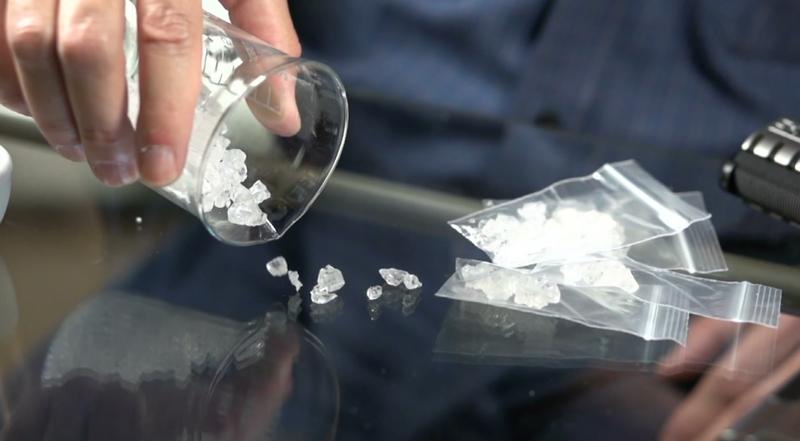Special Report: Revamped Effort In Duluth’s Drug Fight


Photo: WDIO-TV/File
Ryan Juntti
In 2019, Duluth saw the highest amount of opioid overdose deaths in five years. At least 15 people lost their lives, and the city's police department saw another 160 suffer non-deadly reactions.
Prison or jail time is often the reality for those struggling with addiction.
It can often be difficult for offenders when they are released as they often fall back into the cycle of drug use, leading them back to jail or prison.
That was the case for Jonathan Reznick. He can smile about where he's at in life right now. He has built a successful business, owning The Rambler Food Truck, and MidCoast Catering, but for a period of time, he was trying to rebuild his life.
"I had used drugs and alcohol since a young age," Reznick said.
His drug use started at age 12. Reznick says he used pretty much every kind of drug during his addiction.
"It's what I knew. It's how I dealt with life. It's how I, if I was happy, I was using. If I was sad I was using, if I was bored I was using, and then eventually it's just all the time, and it doesn't do what it used to do anymore," Reznick said.
He says there were a few times during the throes of his addiction where he could've died, but despite almost losing his life, his desire for drugs was more powerful than his desire to quit using.
"I was at a point where it's like you can't see your life with it, without drugs and alcohol, and you can't see your life without it anymore," Reznick said.
In 2011, he was arrested, charged, and taken to the South St. Louis County Drug Court for offenses involving drugs and alcohol.
"Starting out at that point, you're so excited because you want to start a new life, but you're so scared because you don't know what to expect," Reznick said.
"The hardest part for me was probably getting rigorously honest with myself about where I was at," Reznick said.
Drug Court was a blessing in disguise for Reznick. It's where he started his business, and he says he isn't sure he would be where he is today without that experience.
"I always say it's the hardest thing I've ever done, but it's the best decision I've ever made," said Reznick.
6th District Court Judge Shaun Floerke says any kind of treatment court isn't easy.
"Most of our folks who have been through the prison side or the jail side will tell you this is harder," said Floerke.
For Floerke, seeing people like Reznick earn a second chance at life makes it all worth it.
"You get to see them in the community. You get to see them doing what we all are doing, and living well, and to me that's the real reward is when you can see people finding their life," said Floerke.
But Drug Court isn't the only program being used to fight addiction.
"If you keep on doing the same road with a problem, and you get the same results, it doesn't make any sense," said Lake Superior Drug and Violent Crime Task Force Commander Lt. Jeff Kazel.
Therefore, Kazel says they are working to start a diversion program.
"We're putting more tools in our tool belt to deal with the problems that we have here in our community," Kazel said. "We realize that arresting our way out of the problem it's cliche but it's not the answer for everything," he added.
"Over the past couple of years, we've really started to partner with the Drug Courts, and with the legal system to be a part of that," said Minnesota Adult & Teen Challenge Community Outreach Manager Amber Jochem.
Jochem says the steps being taken show more of an emphasis is being put on rehabilitation rather than incarceration.
"Minnesota has really, we're changing. We've been on one end of the pendulum, and now we're swinging over to really support justice reform, and be behind individuals and support their recovery," said Jochem.
Floerke says someone who graduates from treatment court is less likely to reoffend than if they go to prison. Therefore, he says this means an increase in public safety.
"They're paying taxes, they're buying cars, they're working jobs. It's a win no matter how you slice it," said Floerke. "You got somebody working a full time job and raising their kids, that's a public safety win," he added.
Floerke adds treatment court also means less money spent on inmates in prison.
"A person going to prison costs you 40 some thousand dollars a year or more. A person in my program costs 5 to 10 thousand dollars," said Floerke.
While some may question why treatment court isn't applied for everyone, Floerke says it's not that easy.
"Everybody thinks, 'oh we should just do this with everybody if it works.' No, you gotta do it with the right people or you can make them worse," said Floerke.
People like Reznick who have battled addiction say turning your life around starts with a desire to get sober.
"You have to want it for yourself, and be ready to put in a lot of hard work," said Reznick.
Reznick put in that hard work, and just celebrated five years of drug and alcohol sobriety on February 2.
"For me, it's all about surrounding yourself with the right people to help you move in the right direction," said Reznick.
Therefore, he advises others who are struggling to find an outlet like he did.
After all, it could be the first step to finding a lifelong passion.
If you or someone you know is struggling with opioid addiction, the Duluth Police Department's opioid hotline is 218-730-4009.
 Pathways Drug Rehabilitation Luxury Addiction Treatment & Detox Center
Pathways Drug Rehabilitation Luxury Addiction Treatment & Detox Center


